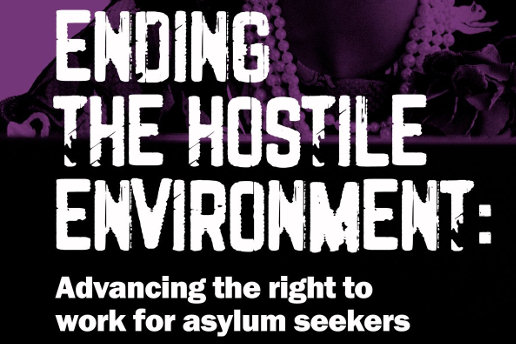Income Support and Social Security Policy Responses to Covid-19 (Part Two)
PPR’s policy and research officer, Paige Jennings, outlines key income and social security policy developments introduced by both the Westminster and Stormont administrations in response to Covid-19.
On 20 March, UK Chancellor Rishi Sunak announced his first income support measure - a temporary Coronavirus Job Retention Scheme for businesses affected by Covid-19. The aim was to support employers financially so that they did not have to lay off staff during the coming months. The UK’s lockdown was announced on 23 March, and eligibility guidance published on 26 March. Struggling employers could place workers on temporary leave, or ‘furlough’, and claim 80% of their wages, plus any employer National Insurance and pension contributions, from the government. The scheme opened for applications on 20 April. Shortly thereafter, it was expanded to include people who had lost their job after 28 February 2020 due to Covid-19, allowing their employers to potentially re-employ them and claim for 80% of their wages. By 8 April, 1 million employers across the UK had furloughed workers from 8.4 million jobs.
Furloughed employees were advised that they could also be eligible for welfare support. Jobcentres were closed to the public; people needing to apply for Universal Credit, new style Employment and Support Allowance and, if furloughed from a part-time position, new style Job Seekers Allowance could only do so online, disadvantaging those without the required devices, internet access or digital literacy.
In June the government published changes to the scheme, allowing employers to bring back furloughed workers part-time in any shift pattern from 1 July while continuing to claim for the rest of their normal hours. The cut-off date for new entrants to benefit from the new flexible arrangements was 10 June.
On 29 May, the government announced a phased extension and reduction of the scheme. In June and July the government will continue to pay 80% of people’s salaries as well as National Insurance and pension contributions, up to a cap of £2,500. In September, the government will pay 70% of wages up to a cap of £2,187.50, while employers will pick up National Insurance and pension contributions as well as 10% of wages, up to the £2,500 cap. In October the proportions will shift again: the government will pay 60% of wages up to a cap of £1,875, and the employer contribution will rise to 20% up to the £2,500 cap.
A key gap identified in the sick pay coverage adversely impacts migrants – including some frontline NHS staff caring daily for Covid-19 patients – who are classed as having No Recourse to Public Funds and who therefore would receive no support in case they themselves fell ill.
With regards employee illness, on 4 March a policy was introduced outlining that during the pandemic employees’ Statutory Sick Pay would be made available from day one instead of day four of illness. From 13 March, Statutory Sick Pay worth £94.25 per week would be paid up to 28 weeks if employees, or someone in their household, was displaying symptoms of coronavirus, if employees were too ill to work or if they were shielding due to vulnerability to Covid. A key gap identified in the sick pay coverage adversely impacts migrants – including some frontline NHS staff caring daily for Covid-19 patients – who are classed as having No Recourse to Public Funds and who therefore would receive no support in case they themselves fell ill.
Support for the self-employed
On 26 March the UK Chancellor announced a Self-Employment Income Support Scheme, available as a three-month grant based on past earnings, worth 80% of their average monthly trading profits and with the same £2,500 per month cap as for employees. The legislation for the scheme was passed on 30 April, and on 4 May the HMRC began contacting eligible individuals. The claims process opened on 13 May, with payments arriving by 25 May. In the interim, self-employed people were advised to apply for Universal Credit – a system that had already seen much criticism over the hardship caused to households by the minimum five-week waiting periods for payments to kick in.
By the end of May, 2.3 million claims worth £6.8 billion had been made to the Self-Employment Income Support Scheme. On 29 May, the UK Chancellor announced an extension, “with those eligible able to claim a second and final grant in August, worth 70% of their average monthly trading profits for three months, and capped at £6,570”.
The self-employed, or anyone earning under £120 per week, are normally ineligible for Statutory Sick Pay. However, the Department for Communities announced a programme to fill that gap for the self-employed and those on zero hours contracts for up to 28 weeks, in line with SSP. Self-employed people were also advised to apply for Universal Credit and/or new style Employment and Support Allowance in case of illness.
These two schemes have had a profound impact in Northern Ireland. On 12 May the NI Executive Office reported:
The shutdown of many industries in Northern Ireland has resulted in the widespread furloughing of workers. There have been far fewer examples of large scale redundancies by firms, and that is a sign that the policy is working. However, the data is indicating that unemployment is being disproportionately concentrated in certain categories. This could plausibly include the self employed, those on temporary or on zero-hours contracts and those who have only been with their employers for a short time… The Ulster University Economic Policy Centre (UUEPC) have estimated that the unemployment rate could reach 6%. This equates to an increase of around 30,000 unemployed people.
Tomorrow, in part three of this series, Paige Jennings will outline the details of the social security policy changes – including measures affecting asylum seekers and those experiencing No Recourse to Public Funds - introduced during the Covid-19 crisis.